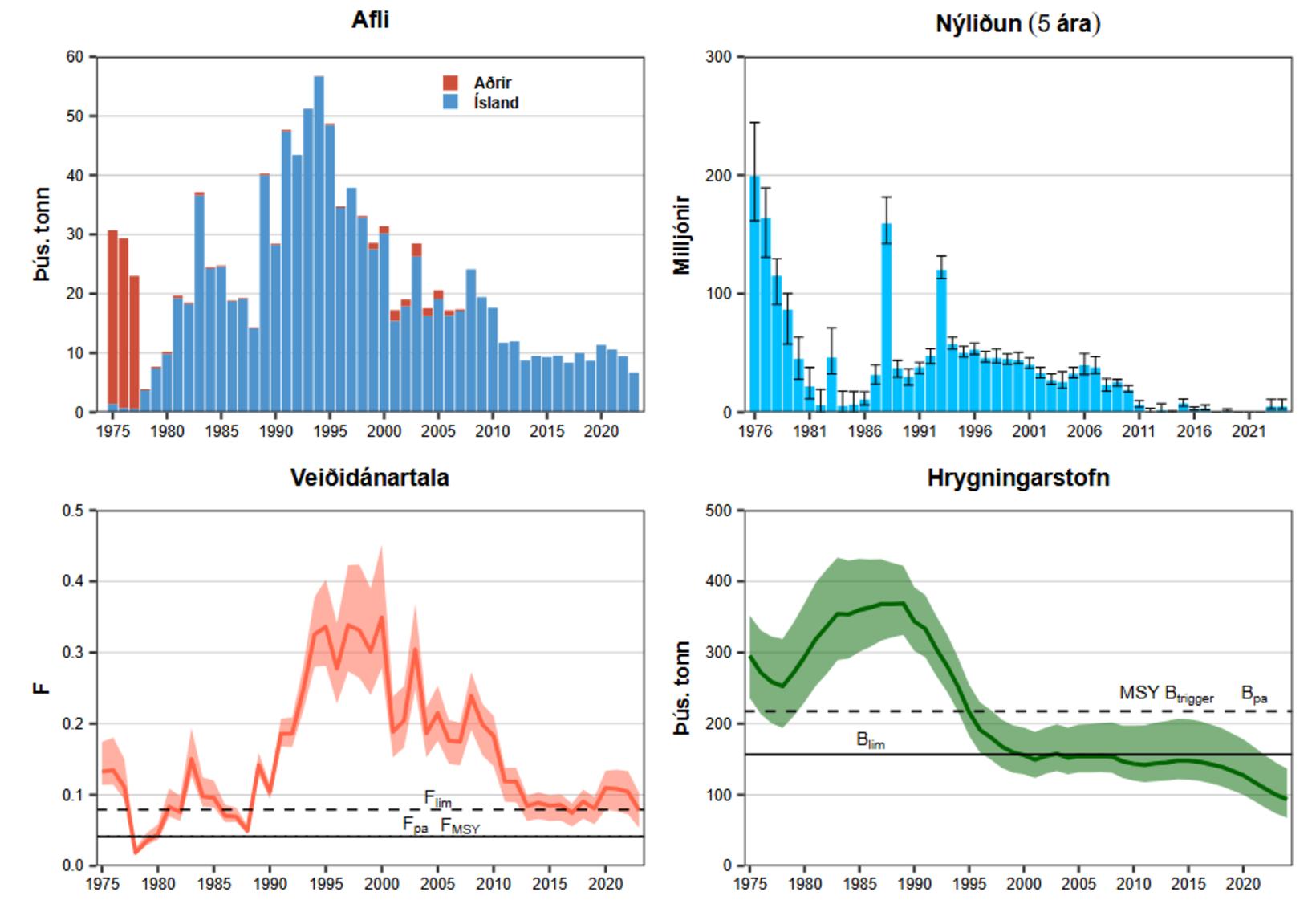Allocating quotas despite advice
Prime Minister Bjarni Benediktsson has signed a regulation on the allocation of deep-sea redfish quotas, contrary to the advice of scientists. mbl.is/Eggert Jóhannesson
The government has issued a 3,800-tonne quota for deep-sea beaked redfish in the current fishing year despite scientific advice that such fishing should not be conducted to protect the stock.
Prime Minister, Minister of Food, Fisheries and Agriculture, and Minister of Social Affairs and Labour, Bjarni Benediktsson signed an amendment to the regulation published yesterday afternoon in the Government Gazette.
3,599 tonnes of the quota will be allocated following quota shares, with 201 tonnes reserved for industrial and rural quotas.
Spawning stock below precautionary limits
The advice from the Marine Research Institute and the International Council for the Exploration of the Sea (ICES) regarding deep-sea beaked redfish fishing in the 2024/2025 fishing year was that no such fishing should be conducted. It was noted that fishing was above precautionary limits and that the size of the spawning stock was considered below precautionary limits.
“Deep sea beaked redfish is a slow-growing and late-maturing species and such species are particularly vulnerable to overfishing. The number of small deep-sea redfish (≤30 cm) in the stock survey has declined significantly since 2007, indicating that recruitment is low. As significant recruitment is not expected in the coming years, the productivity of the stock is likely to decline. In the foreseeable future, the spawning stock will continue to decline, regardless of recruitment, due to the late maturation of deep sea bass,” the advisory states.
No direct fishing of deep sea bass took place in the last fishing year, 2023/2024, but the fishing years are from September 1 to August 31.
Encouragement from captains and SFS
"This was after encouragement from the Icelandic Association of Captains and the Association of Companies in the Fisheries Sector (SFS). This is related to the exploitation of the golden redfish and Greenland halibut stocks, which are practically unfishable unless there is a by-catch of deep-sea redfish," said Jón Gunnarsson, Assistant Minister of Food yesterday.
In his opinion, this was only to facilitate the possibility of fishing in an economical manner and to ensure the utilization of catches that would be landed anyway. Since by-catches are unavoidable, there would be no need to register deep-sea redfish as VS catches or rely on species transfers.
In the 2023/2024 fishing year, when no quota was allocated for deep-sea redfish, the Icelandic fishing fleet landed almost 3,165 tonnes of the species.
Jón Gunnarsson, Assistant Minister of Food, believes that the decision to issue deep sea redfish quotas will facilitate value creation, regardless of whether the species is caught. mbl.is/Eggert Jóhannesson
When the Ministry of Food and Agriculture confirmed a ban on deep-sea redfish fishing in the spring of 2023 for the 2023/2024 fishing year, the ministry was accused of having changed the exploitation policy without notice. The ban was said to have harmed the fisheries for Greenland halibut and the greater argentine.
“The Institute of Marine Research only conducts research and provides advice, but the ministry has the exploitation policy and we need to take economic factors into account there. We could perhaps have reduced the fishing of deep-sea redfish, but not completely ban fishing,” said Guðmundur Kristjánsson, CEO of Brim, in an interview with mbl.is’s 200 miles about the matter.
Small benefit from the measures
It is worth noting that measures such as allowing the registration of catches as VS catches and species transfers are intended to increase flexibility in fisheries management, and thus reduce discards due to, among other things, the lack of quotas for bycatches. However, fishing companies may incur losses when transferring permits from a more valuable species and gain little from recording catches as VS catches.
VS catches are up to 0.5% of pelagic catches or 5% of other catches that the captain may decide not to count towards the vessel's catch limit (quota). The measure is subject to the condition that the catch is put up for auction and sold on the fish market. The vessel's fishing company receives 20% of the sale price and the Treasury 80%.
Little profit from measures
It is worth noting that measures such as allowing the recording of catches as VS catches and species transfers are intended to increase flexibility in fisheries management, and thus reduce discards due to, among other things, the lack of quotas for bycatches. Fishing companies may incur losses when transferring permits from a more valuable species and gain little from recording catches as VS catches.










